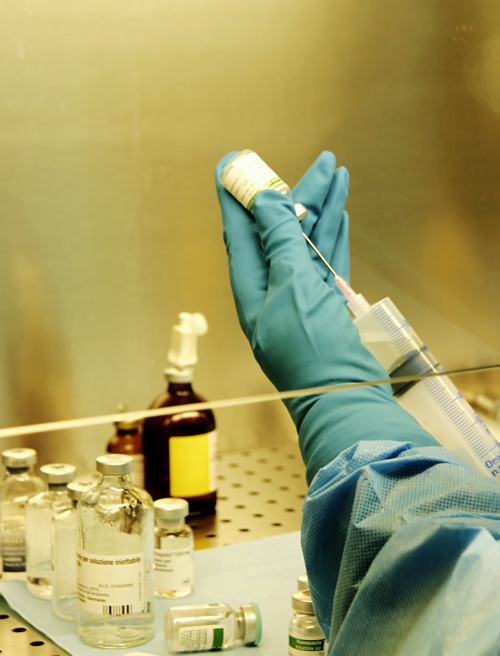
 I’ve been reporting about the dangers of BPA for months, now. I’m not trying to beat a dead horse, but a couple new studies just came out that you need to know about.
I’ve been reporting about the dangers of BPA for months, now. I’m not trying to beat a dead horse, but a couple new studies just came out that you need to know about.
The first one: BPA may reduce the effectiveness of chemotherapy by protecting cancer cells. In other words, if you’re going through chemotherapy and you have BPA in your system (leached into ood from aluminum can linings and plastics), it may be making it more difficult for the chemo to do its job.
The second one: In case you were wondering if you have BPA in your system, a recent report found that more than 90 percent of Canadians have detectable levels of BPA in urine and blood samples. If this is true of Canadians, it’s most likely true of Americans as well. In fact, the most recent report on BPA by the Centers for Disease Control and Prevention (CDC) confirms “widespread exposure to BPA in the U.S. population.”
Scientists at the University of Cincinnati subjected human breast cancer cells to low levels of BPA-consistent with levels found in the blood of human adults. The BPA acted on the cancer cells just like estrogen does-it induced proteins that protected the cells from chemotherapy agents.
“It’s actually acting by protecting existing cancer cells from dying in response to anti-cancer drugs,” said Nira Ben-Jonathan, Ph.D. and lead author of the study, “making chemotherapy significantly less effective.”
If you’re finding that your cancer isn’t responding to chemo, talk to your doctor about this study. Estrogen has been linked to chemo resistance in the past, but some patients have been resistant even with low levels of estrogen, which so far has left doctors baffled. This new study suggests one possible answer to the problem.
Of course the bottom line here is that this study is just one more in a pile that link BPA to health problems in humans. The National Toxicology Program admits concern with BPA’s effects on the brain, behavior, and prostate gland in fetuses, infants, and children. The FDA has acknowledged concern about BPA negatively affecting children, and is conducting further research. The National Institute of Environmental Health Sciences (NIEHS) has prioritized BPA research to “fill in many of the research gaps in this area so informed personal and public health decisions can be made.” The Environmental Protection Agency (EPA) lists BPA among it’s “chemicals of concern” and has also embarked on a plan of action to investigate it further because of its possible harmful effects on the environment. (More than 1 million pounds are released into the environment each year.)
Where does all this BPA come from? We’ve posted about exposure from plastic water bottles and aluminum food cans. However, it’s also present in consumer electronics like computers, cell phones, and video game consoles.
Again, let me remind you of the ways to avoid BPA in your life.
- Don’t microwave in plastic containers, especially older ones that have been exposed to high temperatures numerous times.
- Avoid plastic containers with the #7 on the bottom.
- Don’t wash plastic containers in the dishwasher with harsh detergents. High temperatures and detergents break down the chemical components, making it more likely that BPA will leach out into food.
- Reduce your use of canned foods-use frozen and boxed instead.
- Use glass, porcelain, or stainless steel containers whenever possible, especially for hot food and liquids.
- Replace your plastic bottles with stainless steel refillable ones.
- Use infant formula bottles that are BPA-free and look for toys labeled BPA-free.
- Keep your hands away from your eyes and mouth and wash after using computers and other electronics. Always wash before eating.
- Be cautious of food packaging when shopping for groceries-a recent study found that BPA leached into the food from many types of food packaging (canned and plastic, including containers for children’s formula and food)-search for BPA-free containers, check the company website, and look for fresh and boxed packaging. Consider as well using green grocery bags, as plastic bags can also be a source of BPA.
- Handle receipts as little as possible-new research has found BPA in cash register receipts from ATMs, gas stations, and supermarkets.
Have I convinced you to pay more attention to BPA? Please share your thoughts.
Photo courtesy clarita via morguefile.com.

